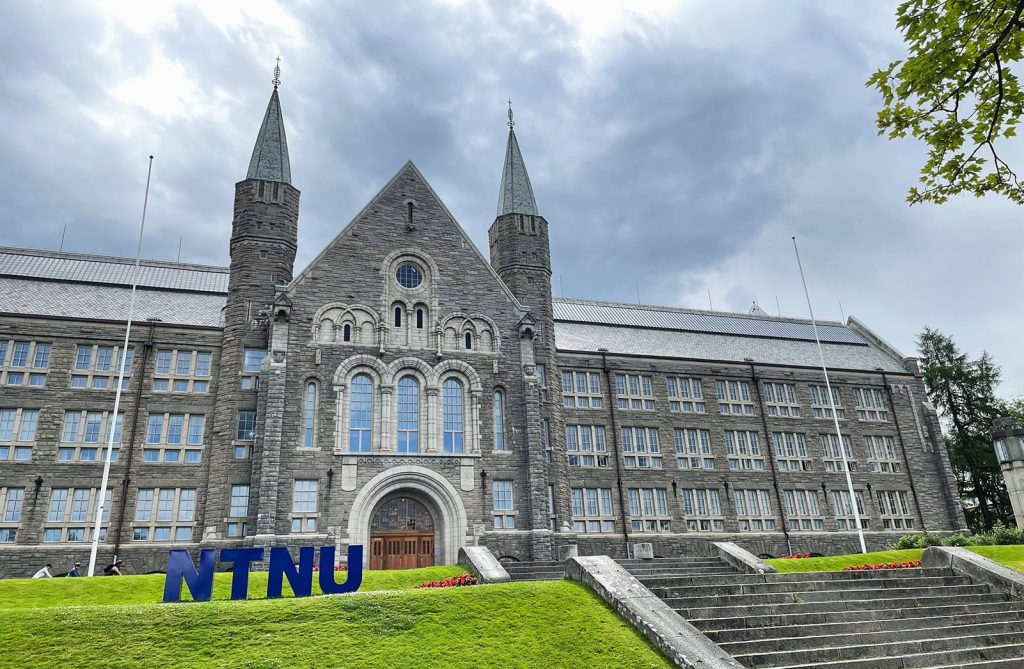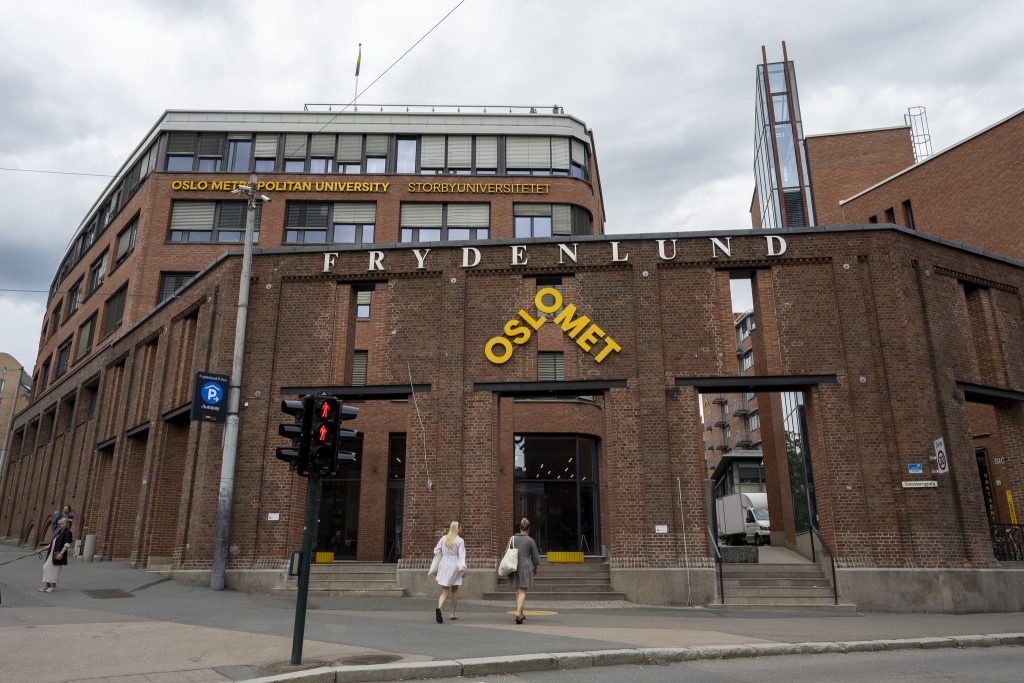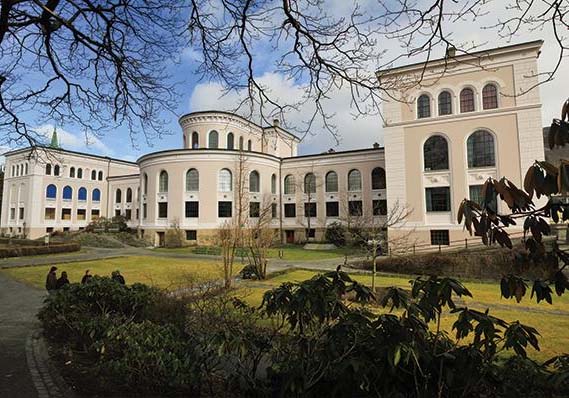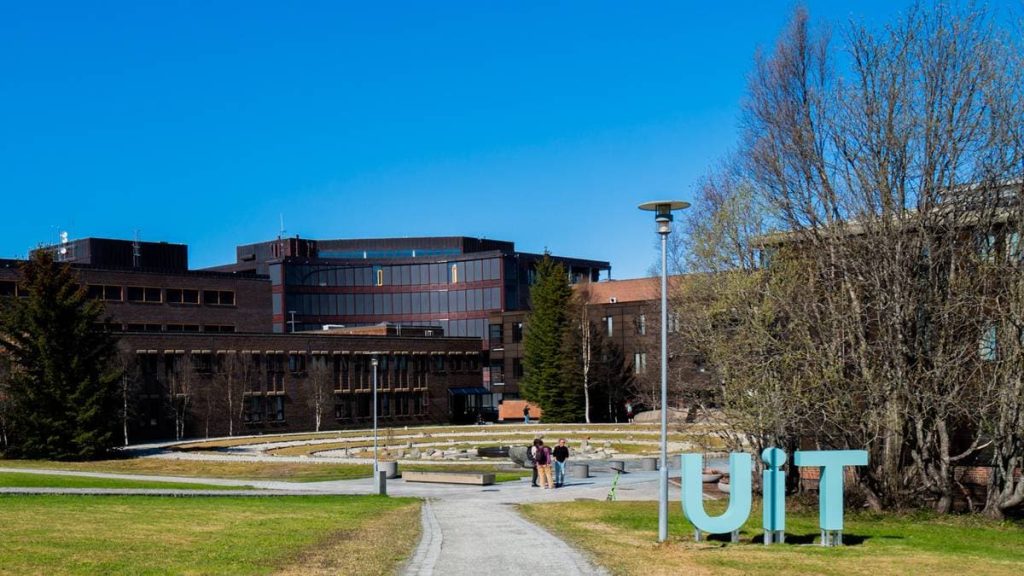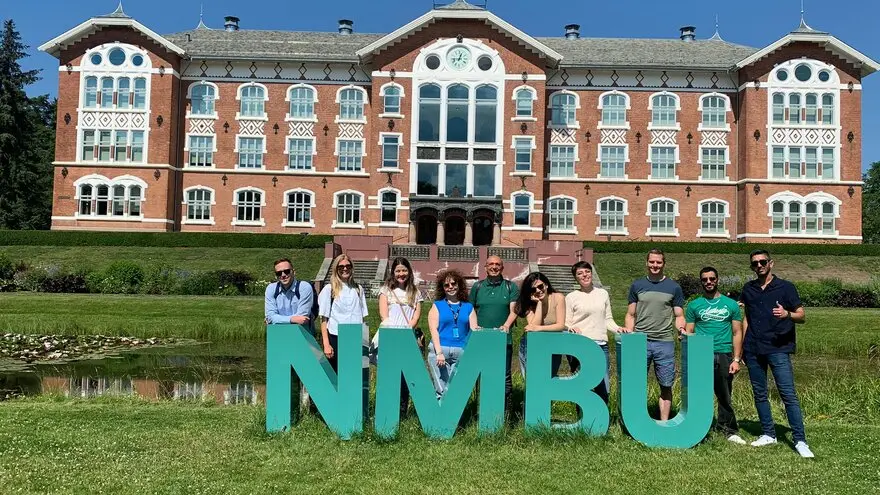Norway continues to stand out as a top study destination—not just for its dramatic fjords and the magic of the Northern Lights, but for offering one of the most progressive and respected public education systems in the world. But what makes Norway such a magnet for international students year after year? The answer lies in its unique blend of academic excellence, tuition-free education at public universities, and a learning culture that champions research, critical thinking, and innovation. Add to that a high standard of living, a strong sense of safety and equality, and a population fluent in English, and it’s easy to see why students from across the globe are choosing Norway as their academic home.
Here’s what makes Norway special in 2025:
Globally Ranked Universities
- University of Oslo (UiO)
- Norwegian University of Science and Technology (NTNU)
- Oslo Metropolitan University (OsloMet)
- University of Bergen (UiB)
Research-Focused Environment
- Norway is recognised mainly for its PhD programs, which are usually research-intensive, fully funded, and connect students with leading industries across the globe.
Specialised Strengths
- Renewable energy and environmental science
- Marine technology and fisheries
- Engineering and automation
- Digital design and data science
- Peace studies, development, and Arctic research
- High English Proficiency
Most Master’s and PhD programs are taught in English, making Norway the easier choice for international students.
Top Norwegian Universities and Their Specialised Courses (2025)
| University | Location | Specialized Fields / Strengths |
| University of Oslo (UiO) | Oslo | Human Rights, Law, Public Health, Scandinavian Studies, Education, Environmental Humanities |
| Norwegian University of Science and Technology (NTNU) | Trondheim | Engineering, Marine Technology, Renewable Energy, Robotics, Architecture, Computer Science |
| Oslo Metropolitan University (OsloMet) | Oslo | Social Work, Health Sciences, Teacher Education, Journalism, Applied Data Science |
| University of Bergen (UiB) | Bergen | Climate and Marine Research, Geology, Global Health, Development Studies, Natural Sciences |
| Norwegian School of Economics (NHH) | Bergen | Economics, Finance, Business Analytics, International Business |
| BI Norwegian Business School | Oslo | Strategic Management, Entrepreneurship, Marketing, Sustainable Business |
| UiT – The Arctic University of Norway | Tromsø | Arctic Studies, Indigenous Studies, Fisheries, Space Physics, Peace and Conflict Transformation |
| Norwegian University of Life Sciences (NMBU) | Ås | Agriculture, Forestry, Biotechnology, Environmental Sciences, Landscape Architecture |
Focus on Equity and Inclusion
Classrooms encourage open dialogue, critical thinking, and high academic freedom.
But Here’s the Catch:
While Norway has a strong reputation for offering tuition-free education, many international students’ financial reality has changed. Since 2023, most non-EU/EEA students must now pay tuition fees, and Norway’s overall cost of living is among the highest in Europe.
So is education in Norway truly free, or are there hidden expenses that international students should be look out for? Let’s dissect.
Understanding ‘Free Education’ in Norway
Norway’s reputation for “free education” has been a significant draw for international students. EU/EEA and Swiss students still enjoy tuition-free education at public universities.
However, since 2023, most non-EU/EEA students are required to pay tuition fees, which vary widely depending on the university and the study program.
Tuition fees for non-EU/EEA students range from NOK 80,000 to NOK 400,000 annually (approx.€7,000 to €35,000).
Tuition Fees for some of the most well known Norwegian Universities:
| University | Tuition Fee Range (per year) |
| University of Oslo (UiO) | NOK 198,000 – NOK 286,000 (~€16,000 – €23,000) |
| Oslo Metropolitan University (OsloMet) | NOK 190,000 – NOK 370,000 (~€17,000 – €33,000) |
| Norwegian University of Science and Technology (NTNU) | NOK 150,000 – NOK 520,000 (~€13,000 – €45,000)* |
Additional Mandatory Fees and Expenses
International students face various additional compulsory costs other than tuition fees, which are often overlooked.
Semester Fee. Regardless of their nationality, all students must pay a semester fee of around NOK 650 (~€60).
This fee supports the student welfare organization, which provides access to:
- Healthcare services
- Counselling
- Sports facilities and student activities
Residence Permit and Proof of Funds
Non-EU/EEA students need a residence permit in order to study in Norway. This requires proof of funds amounting to at least NOK 151,690 (~€13,000) per year.
Books and Supplies
You will have to spend approximately NOK 5,000 to NOK 10,000 per year (~€430 to €860) on textbooks and study materials.
Health Insurance
Health insurance is a compulsion for non-EU/EEA students. Make sure to research insurance providers and the type of coverage offered in order to find the most affordable one.
Cost of Living in Norway
Even if paying tuition is not a problem for you, being a student in Norway can still be pretty expensive, especially if you come from a country that doesn’t have a very strong currency. Here’s why:
Housing
Student Accommodation: Rents typically range from NOK 4,500 to NOK 7,500 monthly (~€390 to €650). The more affordable option would be to stay in university dorms or share a rented apartment. Private Rentals: Prices for renting on your own, especially in cities like Oslo and Bergen, usually exceed NOK 10,000 per month (~€860).
Food and Groceries/month
Monthly food and grocery expenses in Norway range from NOK 2,500 to NOK 3,500 (approximately €215 to €300). Cooking at home and shopping at budget supermarkets can help students stay within this range.
Transportation/month
NOK 500 to NOK 600 (~€43 to €52). Student cards offer 30% to 50% discounts on public transport fares across most cities – Oslo, Bergen,Trondheim, Stavanger, Tromsø. Discounts are applicable for all registered students, including non-EU/EEA holding a valid Norwegian student ID.
Utilities and Internet/month
Monthly costs for utilities and internet in Norway typically range from NOK 800 to NOK 1,200 (around €70 to €105), depending on usage and location. Sharing accommodations can help reduce these expenses further.
Student Card Benefits Apart From Transportation
Student cards provide discounts on:
- Museums, cinemas, and cultural events
- Gyms and sports facilities
- University cafeterias and specific shops or restaurants
- Library access
- Software licenses like Microsoft or Adobe
- University-organised events and workshops
- Occasional domestic travel discounts, eg, trains and ferries (depends on the region)
Even with these benefits, many daily expenses remain at full price, so you need to budget carefully to avoid reckless spending.
Total Monthly Estimate
Depending on your lifestyle and location, total living costs generally fall between NOK 12,000 and NOK 20,000 (~€1,030 to €1,720) per month.
Currency Exchange and Financial Planning
Being smart with your money is really important when studying abroad, especially in a country like Norway, where things can be quite expensive and the local currency is strong. It’s a good idea to keep track of your spending, look out for student discounts, and create a simple plan for your basic needs and enjoyable activities.
Exchange Rate Fluctuations
The Norwegian krone can fluctuate significantly against other currencies.
Students from countries with weaker currencies may find that these changes increase the cost of tuition and living expenses.
Monitoring exchange rates and maintaining backups for fluctuations is very important.
Banking Fees
International bank transfers often come with fees, including currency conversion charges. So do some research and find banks with low fees. Opening a Norwegian bank account early can help reduce transfer costs as well.
Budgeting Tips
Create a comprehensive budget covering:
- Tuition and mandatory fees
- Rent and utilities
- Food and transport
- Books, supplies, and insurance
- Unexpected expenses
Use budgeting apps like Mint or PocketGuard or spreadsheets to track your spending. Build an emergency fund for medical emergencies or travel changes.
Scholarships and Financial Aid Opportunities
While tuition fees apply to non-EU/EEA students, some universities offer limited scholarships or waivers based on academic merit or special partnerships. These opportunities are highly competitive, so you need to apply fairly early if you’re looking to get in.
Limited Scholarships
The Norwegian government provides limited scholarships for students from outside the EU/EEA. Most of the available funding is aimed at EU/EEA students or those coming through exchange programs based on agreements between institutions. Competition is high due to limited availability.
University-Specific Help
Some universities offer merit-based scholarships or tuition waivers. These vary depending on universities and programs. Applying early, is the best way to not get affected by these obstacles.
Alternative Funding Sources
Look for scholarships from your home country, international organisations, or private foundations.
Examples:
Fulbright Program, Erasmus+, or other scholarships offered by specific industries
Some opportunities are not directly available. In order to find those, you can network with university alumi.
Tips:
- Maintain a strong academic record because most scholarships are merit-based.
- Prepare your application materials early, including transcripts, motivation letters, and letters of recommendation.
- Research deadlines and apply as early as possible.
Work Opportunities for International Students
Working part-time while studying is a very good option to both gain work experience and help increase your budget. However, there are specific rules and challenges you should be aware of before you plan your work schedule.
Part-Time Work Regulations
International students can work up to 20 hours per week during the semester. During holidays, full-time work is allowed.
Job Availability and Types
Typical part-time jobs include:
- Retail sales
- Hospitality (cafes, restaurants)
- University departments (library, admin support)
- Jobs may be competitive and often require Norwegian language skills.
Earnings
Hourly wages range from NOK 180 to NOK 220 (~€15 to €19).
While helpful, part-time income usually covers only a portion of living costs.
The Job Market for International Students in Norway
Understanding the Norwegian job market is essential before you plan to work while studying or after graduation.
Job Market Overview
Norway has a strong economy with important industries, including oil and gas, technology, maritime, renewable energy, and healthcare.
Part-time jobs are primarily in the retail, hospitality, and service sectors, which is a major attraction factor for many students.
Competition for jobs are high, especially in urban areas like Oslo, Bergen, and Trondheim. So gain experience in your early university years in order to stand out.
Language Requirements
Learning Norwegian is important in order to secure a job, especially if you’re looking to work in hospitality. Some tech and academic roles may accept English, but proficiency in Norwegian is required if you want to land a permanent position. Some universities often offer Norwegian language courses for international students, so you can also look for those.
Challenges for International Students
Many employers prefer candidates with local work experience or Norwegian language ability. You can also find useful support through online job boards and university career centres.
Tips for Navigating the Job Market
- Start early: start looking for jobs well before you need the income, so when you do need the income, you will know exactly where to go.
- Use your university’s career centre for guidance and workshops.
- Do internships to gain experience and contacts.
- Update your CV and cover letter to fit the Norwegian standards.
Post-Study Work Permits (PSW) and Sponsorship Visas
Navigating post-graduation work options is crucial for non-EU/EEA students who wish to stay in Norway.
What is a Post-Study Work Permit (PSW)?
International students from outside the EU/EEA can stay in Norway for up to one year after finishing their studies by applying for a Post-Study Work permit. It allows you to work full-time while looking for a job related to your field of study. However, the application must be submitted within three months after your student residence permit expires.
Sponsorship Visa (Work Visa)
To stay in Norway after the Post-Study Work period ends, you must apply for a work visa sponsored by an employer. It’s important to know that not every employer has the provisional body to give the sponsorship visa. Employers must be registered and approved by Norwegian authorities to sponsor foreign workers. The job offer must meet specific criteria for skill level and salary.
Positions in high-demand jobs or skilled roles are more likely to be approved.
Challenges and Considerations
Not all companies can sponsor visas; smaller firms may not have the registration or resources to handle sponsorships. So do your research before you take up a position at any company. This process can be very competitive and involves a lot of paperwork, so having a strong CV, work experience, and language proficiency helps.
How to avoid the challenges:
- Build a strong professional network during your studies. How do you do that? Attend job fairs, seminars, and university events.
- Seek internships that will likely lead to permanent placement.
- Improve your Norwegian language skills to widen your opportunities.
- Stay informed about immigration rules via the Norwegian Directorate of Immigration (UDI) website.
Tips & Tricks for Prospective Students
Studying in Norway can be a fantastic opportunity if you plan carefully and prepare well.
Here’s how:
Early Financial Planning
Calculate the rough costs for tuition, living costs, mandatory fees, and emergency expenses well in advance. You can also use budgeting apps like Mint or PocketGuard that help you stay on budget. Maintaining spreadsheets or having a journal are also good ideas.
Accommodation
Apply for student housing early as affordable rooms fill quickly, especially in major cities.
Explore alternative options like shared apartments or private rentals, but budget accordingly.
Language and Networking
Learn basic Norwegian before and during your studies to improve work and social opportunities. To build your professional network, attend university events, workshops, and job fairs. Connect with current students and alumni for insider tips and support.
Utilizing Student Cards and Discounts
Obtain your student card immediately — it grants access to public transportation discounts, cultural activities, and other services. Take advantage of student welfare organisations that offer counselling, sports facilities, and healthcare support.
Academic Excellence
Maintain strong grades to improve scholarship chances and enhance your CV.
Seek help early if you struggle academically — universities often provide tutoring and support services.
Stay Informed
Keep up with the updates on visa rules, financial aid, and job market trends through official sources like UDI and university websites.
Myth vs Reality – Studying in Norway in 2025
Many international students are attracted to Norway’s free education and beautiful landscapes, but the reality in 2025 involves hidden costs and challenges.
This Myth vs Reality guide clears misconceptions and offers practical tips for studying in Norway with confidence.
| Myth | Reality | How to Tackle It |
| 1. Education in Norway is 100% Free | Since 2023, non-EU/EEA students must pay tuition fees at most public universities. | Check university websites for affordable programmes or scholarships. Apply early for merit-based scholarships or tuition waivers. |
| 2. Norway is Cheap Because Education is Free | Norway has one of the highest costs of living in Europe. Monthly living expenses average NOK 12,000–13,000 (€1,012–€1,104). | Stay in university dorms or shared rentals. Use student discounts. Cook at home and shop at local markets to save money. |
| 3. Students Can Easily Work to Cover Expenses | Part-time work helps but doesn’t cover all costs. Limit: 20 hrs/week during semester. Wages: NOK 180–220/hr (€16.5–€20.2). Lack of Norwegian limits job options. | Learn Norwegian to improve job chances. Start job hunting early. Use university career services. Do internships to gain experience. |
| 4. Many Available Scholarships | Scholarships are limited and very competitive, especially for non-EU/EEA students. Quota Scheme is discontinued. | Apply to multiple sources including your home country and international organisations. Keep high grades and apply early. Contact universities directly. |
| 5. You Don’t Need to Show Financial Proof | You must show funds of ~NOK 137,907/year (€12,658) to get a residence permit (excludes tuition). Money must be deposited in Norway. | Prepare documents early. Look into student loans or sponsorships. Follow UDI guidelines on financial proof requirements. |
Turning Challenges into Opportunities: Why Studying in Norway Is Worth the Commitment
Norway is an attractive destination for international students due to its high-quality education, innovative research, and strong focus on specialized programs—especially at the PhD level. While the idea of “free education” has shifted for many non-EU/EEA students, Norway still offers excellent value for those who plan carefully and commit to the journey.
Yes, the costs of tuition, living, and other fees can be significant. The job market is competitive, and financial aid is limited. However, if you plan early, learn Norwegian and have the necessary resources, these obstacles are not going to hamper your chances of studying in Norway.
If Norway is your dream destination, know that it requires more than luck. It demands dedication, budgeting, and networking.
In other words, Norway is not just about “free education” — it’s about an opportunity to grow academically, professionally, and personally. Even though there are quite a few obstacles, if you put in the work and give it your best, Norway will be the best decision you make regarding academic excellence.
Reference
- Study in Norway — Official Norwegian Government Portal for International Students
https://studyinnorway.no - Norwegian Directorate of Immigration (UDI) https://www.udi.no/en
- Norwegian University of Science and Technology (NTNU) – International Students Page
https://www.ntnu.edu/studies/international - Statistics Norway (Statistisk sentralbyrå – SSB) — Cost of Living Data
https://www.ssb.no/en - The Norwegian Centre for International Cooperation in Education (SIU) / Norwegian Agency for International Cooperation and Quality Enhancement in Higher Education (Diku)
https://diku.no/en
Written by Manjul Kathotia.


